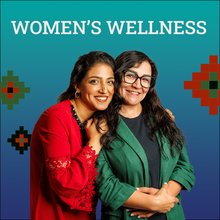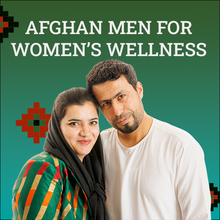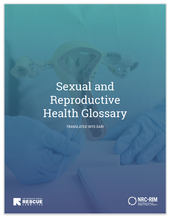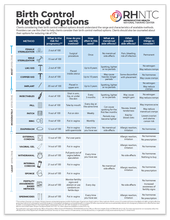
Good reproductive health is not only vital for successful and healthy livelihood, it is also a human right. Poor reproductive health has been linked to other diseases and illnesses including mental health needs.
To maintain one’s sexual and reproductive health (SRH) people need access to accurate information that empowers them to make informed decisions regarding their body and to protect themselves from any diseases or infections.
Discover how you can support SRH of Afghan newcomers with:
- Tools to aid in translation and interpretation
- Translated health education materials
- Promising practices from around the country
- Other resources from organizations doing great work
In collaboration with the International Rescue Committee, we are introducing informative videos on contraceptive options explicitly tailored for Afghan newcomers. We aim to provide clear, culturally sensitive information to help individuals make informed decisions about their reproductive health.
As part of our comprehensive SRH Toolkit, these videos are available in :
English | Dari | Pashto
Sexual and Reproductive Health Glossary
The purpose of this Sexual and Reproductive Health (SRH) Glossary is to provide a standardized reference tool of SRH terms, translated from English into Dari and Pashto, that have been culturally validated and reviewed by a group of Afghan subject matter experts.
It includes words and definitions in English that serve as a reference to ensure cross-cultural understanding of the terminology, as well as colloquial expressions in Dari and Pashto to complement medical terminology.
The glossary is intended for use by interpretation and translation companies, public health departments, and medical providers to help ensure consistent, culturally and linguistically appropriate translations of sexual and reproductive health terms.
Birth Control Methods Chart
In the U.S., birth control options usually focus on efficacy, but some people have different priorities when it comes to choosing contraception, for example, its effect on menstruation or even how discrete it is.
Our friends at the Reproductive Health National Training Center (RHNTC) created chart explaining birth control options at-a-glance. The chart covers efficacy, frequency of use, menstrual side effects, and other considerations.
RHNTC recommends providers use this chart in discussing contraceptives and pairing it with counseling about STIs.
Women’s Resilience Center
Learn in this promising practice how the Women’s Resilience Center (WRC) in San Diego, established by the IRC, supports Afghan newcomer women with community connections and essential resources. Offering in-language programs, healthcare support, and a welcoming, women-only space, the WRC helps overcome social isolation and healthcare navigation challenges. This approach significantly improves participants' well-being and community connectedness.
Sexual and Reproductive Health Needs Assessments
Discover how Health Needs Assessments (HNAs) are addressing the unique healthcare challenges faced by Afghan women in the U.S. Learn about tailored interventions and impactful findings to enhance healthcare accessibility and cultural sensitivity.
Culturally Responsive Sexual Assault Nurse Examiner Care
This promising practice showcases the importance of a sexual assault nurse exam (SANE), with specialized training in identifying and addressing the medical needs of individuals who have experienced sexual violence. The overarching goal of SANE services is establishing a balance between a systematic and comprehensive health assessment and honoring and supporting the patient's agency, dignity, and cultural/linguistic traditions.

Orienting Afghan Newcomers to Prenatal Care and Delivery in the United States
Discover how to overcome the challenges faced by Afghan refugee mothers in accessing prenatal care in the United States. Initiatives like group prenatal education classes in Washington State and hospital orientation programs in California provide culturally appropriate support for expecting Afghan mothers.



